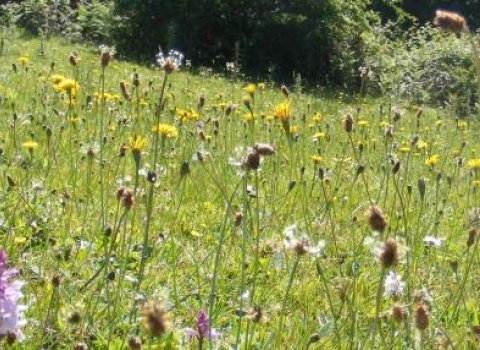Creating a network for pollinators
Can you imagine trying to travel around Britain without our road and rail network? For much of our wildlife this is the reality, as patches of habitat have become isolated.
Why do we need to take action?
Bees, butterfly and hoverfly numbers have declined rapidly in the last 50 years, due to loss of wildflower-rich habitat. Changes in land use including intensive farming, urban spread and new transport links have had a huge impact.
What are B-Lines?
B-Lines are wide strips of permanent wildflower-rich habitats that link existing wildlife areas together to create a network. The B stands for Biodiversity.
In partnership with Buglife - The Invertebrate Conservation Trust and with support from a number of other partner organisations, we have mapped the best routes for the B-Lines network.
Below is the West of England B-Lines. Click here to add your actions for pollinators to the national B-Lines map
Over 97% (an area the size of Wales) of all flower-rich grasslands have been lost in Britain since the 1930s.
Current work
We are currently working with our partners, BugLife, and Somerset Wildlife Trust in the West Mendip area. In this phase, we are improving sites by removing scrub, gorse and turkey oak, helping species-rich grassland to recolonise, and creating more barriers such as fencing and dry stone walls to help manage the grazing and provide additional habitat for insects. Grazing helps wildflowers as the animals eat rough grasses that would otherwise crowd out more delicate flowers.

Help us create new wildflower habitats
With your support, the B-Lines project is creating new wildflower habitats along these routes, allowing bees, butterflies and other insect pollinators to move across the landscape.
Through our work in Avon, we are contributing to a national pollinator network that will weave across the British countryside and through our towns and cities.
B-Lines funders
This project has been made possible through grants from Cory Environmental Trust in Britain, Ibstock Cory Environmental Trust, Biffa Award, John Paul Getty, South Gloucestershire Council Environment Grant, Bristol City Council and Wessex Water, with additional support from project partners.
